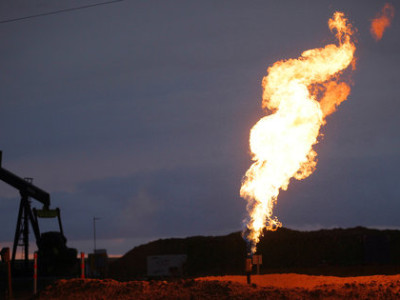
A week ago, a federal district court overturned yet another ill-conceived rollback by the Trump Administration. The case, California v. Bernhardt, involved releases of methane, a potent greenhouse gas. The legal flaws in the rollback by the Bureau of Land Management, are all too typical of the Administration’s work product. The Administration has repeatedly lost in court because an agency failed to do its homework.
A little background: The Obama Administration had issued a regulation to prevent the oil and gas industry to stop wasting natural gas (methane) by venting it into the atmosphere or flaring it. The Obama regulation mostly required industry to follow the practices already mandated in some states and followed voluntarily by major oil companies elsewhere. The obvious reasonableness of this requirement wasn’t enough to save it from the Trumpites. But the court concluded that they had failed to do their homework.
The court found that in a score of places, the BLM analysis lacked a reasoned explanation, ignored contrary evidence (much of it developed in the Obama rule-making), or violated procedural requirements. If even half of those examples are correct, it would show a severe breakdown in the rule-making process. I’ll focus on three points that seem particularly important.
First, the agency concluded that it lacked statutory authority to even consider environmental harms. The Obama Administration regulation was based on a statute that requires the government, when issuing leases for coal, oil, or gas production, to prevent “waste” of the gas. The statute doesn’t define waste, and the court concluded that the statute was ambiguous. The Trump Administration interpreted waste to mean that the cost of conserving the gas was more than the market value of the gas. Its argument relied on a section of the Mineral Leasing Act. I won’t bore you with the details, but the Administration’s argument was that the initial clause of that section modified everything after that. This seems dubious because there’s a semicolon separating the clauses, as the court pointed out. In addition, some of what follows the semicolon has no apparent relationship to the first clause. The agency also failed to refer to other language in the same section that requires safeguarding “the public interest.” To make things worse, the agency ignored language in a more recent statute governing public lands that tilts in favor of considering environmental issues.
Second, the agency said no environmental impact statement was required because any air pollution would take place far from anywhere people were living and because the methane emissions were only a small share of U.S. emissions. But by the agency’s own reckoning in its cost-benefit analysis, the climate impacts were still not negligible cumulatively, amounting to hundreds of millions of dollars at the least. And the agency provided no evidence about distance from affected populations. The court took a look at a map and discovered that in fact a number of Indian reservations and smaller cities would be impacted.
Third, the agency made a fateful decision in its cost-benefit analysis. In determining the climate impacts of the methane (the Social Cost of Methane), it considered only impacts in the U.S. This made a tremendous difference in the outcome of the cost-benefit analysis. The agency pointed to White House guidance (including a Trump executive order) as the reasons for the reversal of the Obama era regulation. But it failed to discuss the arguments for considering the global impacts of the methane, as the Obama Administration had done. Those arguments include economic literature (including a report from the National Academy of Science) saying that considering the global impact was the correct approach and that estimates for individual regions such as the United States were unreliable. The court didn’t say that using the global approach is required. But the court did say the agency had to give some kind of argument for changing direction, and it failed to do so.
In reading legal briefs, it’s not uncommon to read something that seems very persuasive — only to discover, when you read the opposing brief, that there were huge holes in the argument. The agency acted as if no one would ever point out the evidence and arguments on the other side. That kind of one-sidedness is not only bad lawyering, it also renders an agency decision arbitrary and capricious.
—
Note: hat tip to Dean Rowan in Berkeley’s law library for chasing down the opinion for me after I was unable to locate it.
The post Wasting Away in Methaneville appeared first on Legal Planet.
By: Dan Farber
Title: Wasting Away in Methaneville
Sourced From: legal-planet.org/2020/07/22/wasting-away-in-methaneville/
Published Date: Wed, 22 Jul 2020 14:17:32 +0000
Vist Maida on Social Me
Website Links
Maida Law Firm - Auto Accident Attorneys of Houston, by fuseology

No comments:
Post a Comment